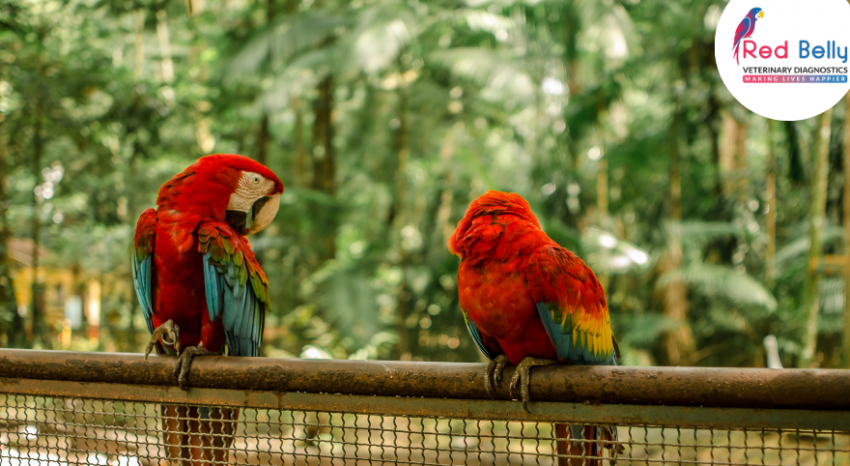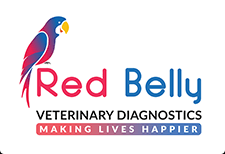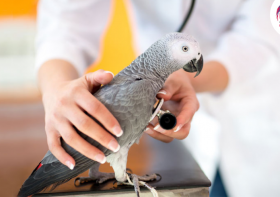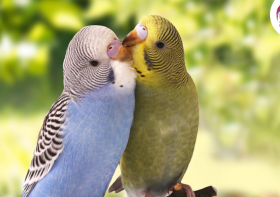10 safety tips every pet bird owner should know

Birds make for some of the most beautiful creatures and are considered as one of the most trained and intelligent animals. They can mimic human voices and are also fun to play with. Due to this birds make for wonderful pets. They are generally low-maintenance pets and when taken care of properly, they make great companions. However, as a pet bird owner, it is necessary to know some important things regarding how to keep your bird safe and happy. Redbelly Veterinary Diagnostics is here with a blog on 10 safety tips every pet bird owner should know. The blog dives deep into essential things to be taken care of for the overall safety and well-being of your feather friends.
- Provide a safe cage – One of the most important things you can do for your bird’s safety is to provide a safe and comfortable cage for your birdie. Whether buying or building the cage for your feather friend, make sure that your design is safe and appropriate for your birdie. Avoid the use of any toxic materials for the cage setup.
- Trim their nails regularly – Overly long nails do catch in things and harm your birdie. In severe cases, it might also have a life-threatening effect on the bird. So, make time to trim the nails of your birdie regularly. If your birdie does not cooperate well, consider visiting an avian hospital nearby for nail trimming sessions. The team there will handle your bird and trim its nails safely.
- Learn about toxic plants and chemicals – Certain plants and chemicals are unsafe for birds and when not taken care of properly, might harm the bird seriously. Toxic gases, Lead, smoke, harsh chemicals, and plants such as Avocado, Oak, and Caladium are harmful to birds. Ensure to keep your birdie away from these toxic plants and chemicals.
- Choose the right toys – There are different toys available for different species of birds. Buy the right one for your bird and inspect them carefully for parts that could trap an active toe or tongue of a bird. Thin wires, tiny parts, and bells can be deadly traps for birds. Plus, do not forget to keep an eye on the bird the first time it plays with a new toy, just to ensure that it’s safe.
- Keep them away from the kitchen – Birds do not belong to the kitchen at all. Smoke, fumes, or certain vegetables and fruits might be toxic for birds and can affect the sensitive avian respiratory system. Place the cage away from the kitchen and never allow your bird to enter the kitchen.
- Don’t feed human foods – Not everything that is good for humans is good for birds. Avoid feeding human foods to your bird. This will not only keep them safe from potentially poisonous foods but will also avoid health problems related to nutrition.
- Ensure to provide good ventilation – Proper ventilation is essential for every living creature. Place your bird’s cage in a place where there is good light and ventilation. When using products that release strong fumes, consider moving the bird to a separate room and open windows to ensure plenty of ventilation.
- Don’t run fans when your bird is out of the cage – Birds may not realize the blades on a fan are dangerous and they might fly straight into them, or get too close and harm their wings. Never run fans when your bird is out of the cage. Also, avoid placing the cage at a short distance from fans.
- Clean the cage regularly – Cleaning your bird’s cage on a regular basis is necessary for its overall health and well-being. Remove leftover food, fallen feathers, and feces from the cage and make time to clean food and water bowls daily. A dirty cage might cause health issues in your bird, so make sure that your bird’s home is kept as clean as possible.
- Keep other pets away from your bird – Your other pets like a cat or dog might seem okay with your bird, but that’s not always true. Always supervise the pets closely when they are around the bird. Never leave them together when you aren’t around or allow them too close to your bird.
We hope you enjoyed our blog on the 10 safety tips every pet bird owner should know. If you have any specific questions about your bird, or if you want to share feedback about the blog, please feel free to comment below. For any other questions or bird health services, please contact us at the details provided on our website. At Redbelly veterinary diagnostics we offer bird DNA testing, bird health diagnosis, PBFD tests, and breed-wise dietary guidance for birds. Our team of experienced professionals handles your birdie with care and compassion and provides the best service possible. You can book an appointment online or call us at the number provided on the website. We look forward to hearing from you. Thank you for reading!
Deprecated: ltrim(): Passing null to parameter #1 ($string) of type string is deprecated in G:\PleskVhosts\spinzsuntanremover.com\redbellydiagnostics.com\blogs\wp-includes\wp-db.php on line 3031
Deprecated: Creation of dynamic property WP_Term::$object_id is deprecated in G:\PleskVhosts\spinzsuntanremover.com\redbellydiagnostics.com\blogs\wp-includes\class-wp-term.php on line 198
Deprecated: Creation of dynamic property WP_Term::$object_id is deprecated in G:\PleskVhosts\spinzsuntanremover.com\redbellydiagnostics.com\blogs\wp-includes\class-wp-term.php on line 198
Deprecated: Creation of dynamic property WP_Term::$object_id is deprecated in G:\PleskVhosts\spinzsuntanremover.com\redbellydiagnostics.com\blogs\wp-includes\class-wp-term.php on line 198
Deprecated: Creation of dynamic property WP_Query::$comments_by_type is deprecated in G:\PleskVhosts\spinzsuntanremover.com\redbellydiagnostics.com\blogs\wp-includes\comment-template.php on line 1525




Leave a Reply